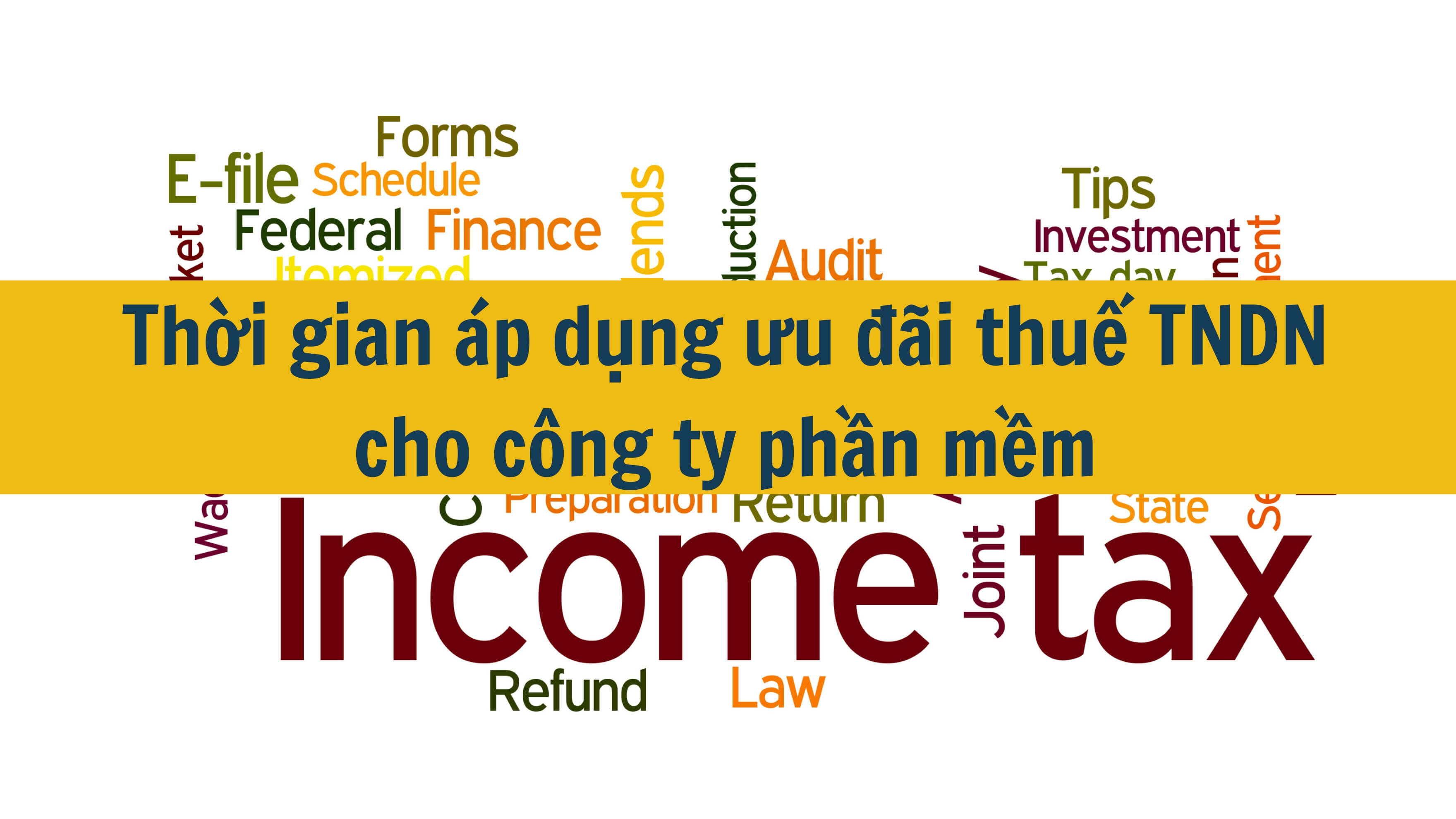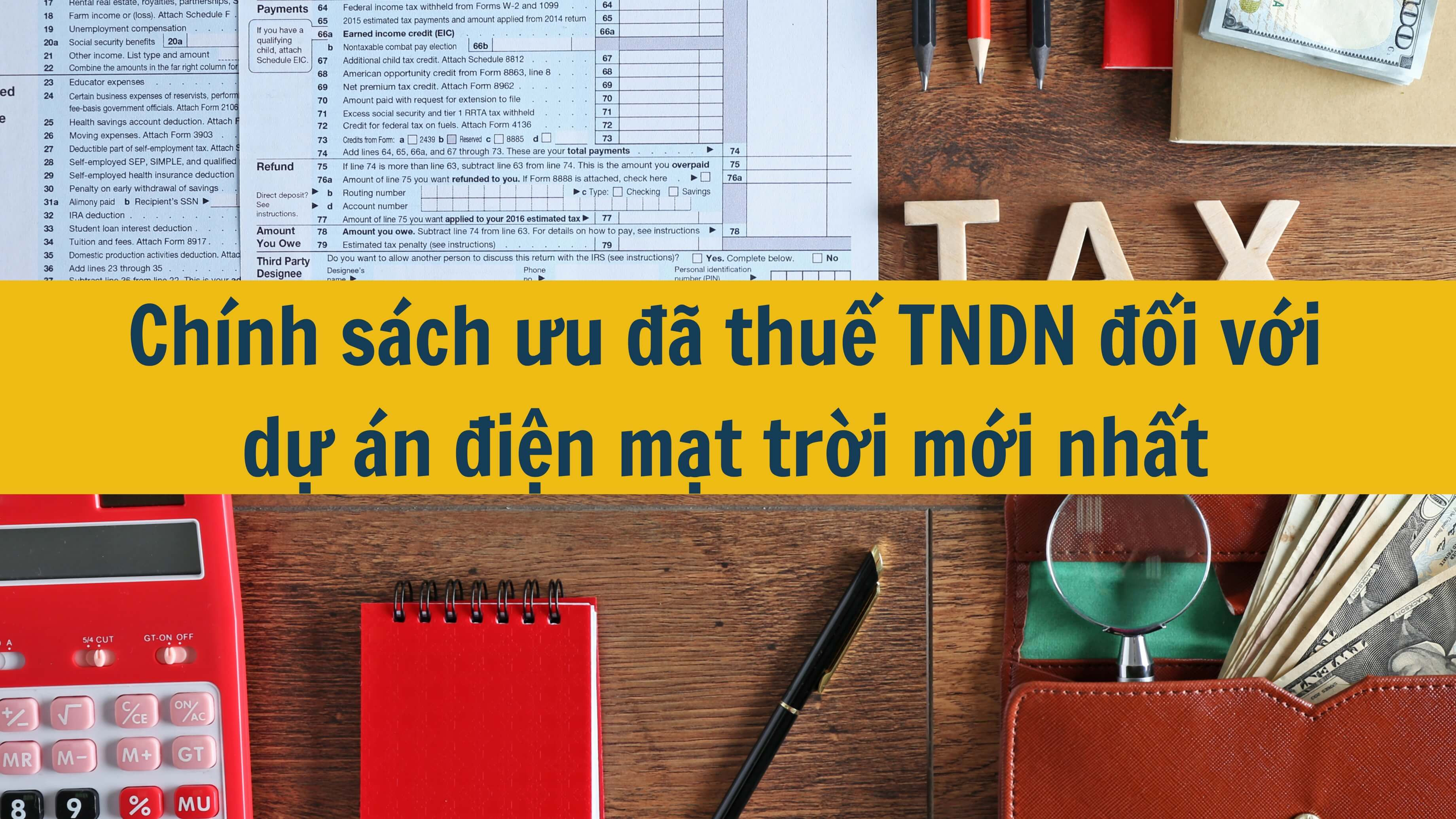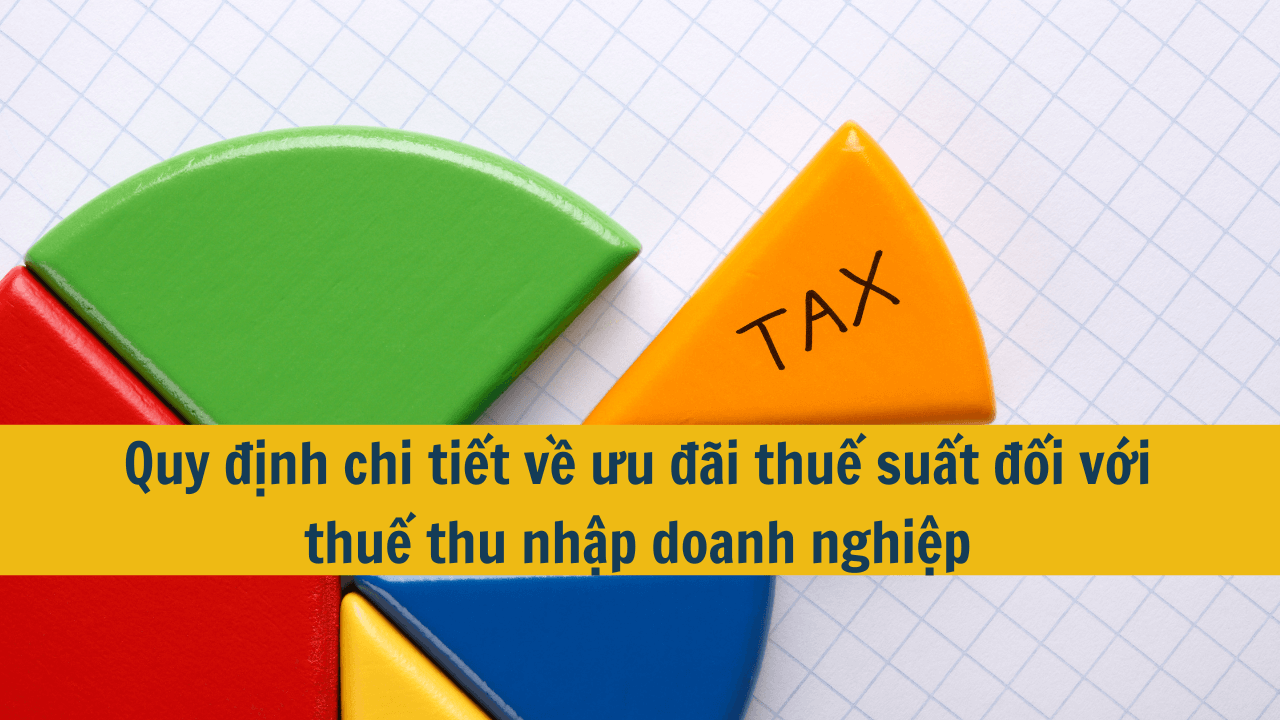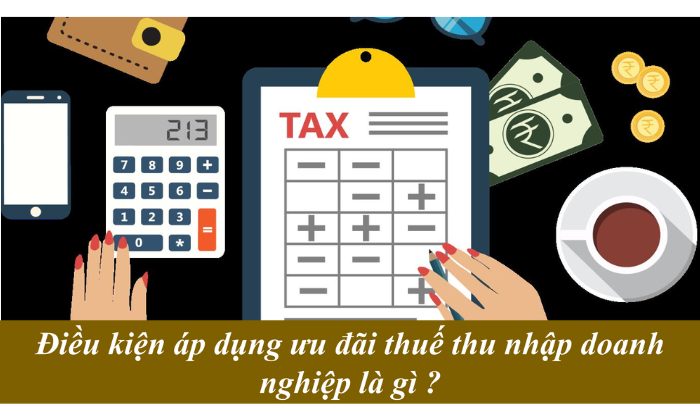 Tìm kiếm
Tìm kiếm
Chương 1 Nghị định 218/2013/NĐ-CP: Quy định chung
| Số hiệu: | 218/2013/NĐ-CP | Loại văn bản: | Nghị định |
| Nơi ban hành: | Chính phủ | Người ký: | Nguyễn Tấn Dũng |
| Ngày ban hành: | 26/12/2013 | Ngày hiệu lực: | 15/02/2014 |
| Ngày công báo: | 10/01/2014 | Số công báo: | Từ số 71 đến số 72 |
| Lĩnh vực: | Doanh nghiệp, Thuế - Phí - Lệ Phí | Tình trạng: | Còn hiệu lực |
TÓM TẮT VĂN BẢN
Thuế TNDN 2014: các chi phí được thanh toán tiền mặt
Theo quy định tại Luật thuế thu nhập doanh nghiệp sửa đổi năm 2013 và Nghị định 218/2013/NĐ-CP thì DN chỉ được thanh toán bằng tiền mặt với các chi phí sau:
- Hóa đơn mua hàng hóa, dịch vụ có giá trị dưới 20 triệu.
- Các khoản chi thu mua hàng hóa, dịch vụ được lập Bảng kê theo quy định.
- Các khoản chi của DN cho việc thực hiện các nhiệm vụ quốc phòng, an ninh; Phục vụ cho hoạt động phòng, chống HIV/AIDS nơi làm việc; Hỗ trợ phục vụ cho hoạt động của tổ chức Đảng, tổ chức CT-XH trong DN.
Với các khoản chi còn lại, DN buộc phải thực hiện thanh toán bằng các phương thức không dùng tiền mặt, nếu không sẽ không được đưa vào chi phí hợp lý.
Các quy định này sẽ có hiệu lực từ 15/2/2014 và được áp dụng trong kỳ tính thuế từ năm 2014 trở đi, Bộ Tài chính sẽ có văn bản hướng dẫn cụ thể cách áp dụng các quy định này.
Văn bản tiếng việt
Văn bản tiếng anh
Nghị định này quy định chi tiết và hướng dẫn thi hành một số điều của Luật thuế thu nhập doanh nghiệp và Luật sửa đổi, bổ sung một số điều của Luật thuế thu nhập doanh nghiệp về: Người nộp thuế; thu nhập chịu thuế, thu nhập miễn thuế; xác định thu nhập tính thuế, xác định lỗ và chuyển lỗ; doanh thu; các khoản chi phí được trừ và không được trừ khi xác định thu nhập chịu thuế; thuế suất; phương pháp tính thuế; ưu đãi thuế và điều kiện áp dụng ưu đãi thuế.
Người nộp thuế thực hiện theo quy định tại Điều 2 Luật thuế thu nhập doanh nghiệp và Khoản 1 Điều 1 Luật sửa đổi, bổ sung một số điều của Luật thuế thu nhập doanh nghiệp.
1. Người nộp thuế theo quy định tại Khoản 1 Điều 2 Luật thuế thu nhập doanh nghiệp bao gồm:
a) Doanh nghiệp được thành lập và hoạt động theo quy định của Luật doanh nghiệp, Luật đầu tư, Luật các tổ chức tín dụng, Luật kinh doanh bảo hiểm, Luật chứng khoán, Luật dầu khí, Luật thương mại và quy định tại các văn bản pháp luật khác dưới các hình thức: Công ty cổ phần; công ty trách nhiệm hữu hạn; công ty hợp danh; doanh nghiệp tư nhân; các bên trong hợp đồng hợp tác kinh doanh; các bên trong hợp đồng phân chia sản phẩm dầu khí, xí nghiệp liên doanh dầu khí, công ty điều hành chung;
b) Doanh nghiệp được thành lập theo quy định của pháp luật nước ngoài (sau đây gọi là doanh nghiệp nước ngoài) có cơ sở thường trú hoặc không có cơ sở thường trú tại Việt Nam;
c) Các đơn vị sự nghiệp công lập, ngoài công lập sản xuất, kinh doanh hàng hóa, dịch vụ có thu nhập chịu thuế theo quy định tại Điều 3 Nghị định này;
d) Các tổ chức được thành lập và hoạt động theo Luật hợp tác xã;
đ) Tổ chức khác ngoài tổ chức quy định tại các Điểm a, b, c, d Khoản này có hoạt động sản xuất, kinh doanh có thu nhập chịu thuế theo quy định tại Điều 3 Nghị định này.
2. Tổ chức được thành lập và hoạt động (hoặc đăng ký hoạt động) theo quy định của pháp luật Việt Nam, cá nhân kinh doanh là người nộp thuế theo phương pháp khấu trừ tại nguồn trong trường hợp mua dịch vụ (kể cả mua dịch vụ gắn với hàng hóa, mua hàng hóa được cung cấp, phân phối theo hình thức xuất nhập khẩu tại chỗ hoặc theo các điều khoản thương mại quốc tế) trên cơ sở hợp đồng ký kết với doanh nghiệp nước ngoài quy định tại các Điểm c, d Khoản 2 Điều 2 Luật thuế thu nhập doanh nghiệp.
Bộ Tài chính hướng dẫn cụ thể việc khấu trừ thuế quy định tại Khoản này.
1. Thu nhập chịu thuế bao gồm thu nhập từ hoạt động sản xuất, kinh doanh hàng hóa, dịch vụ và thu nhập khác quy định tại Khoản 2 Điều này. Đối với doanh nghiệp đăng ký kinh doanh và có thu nhập quy định tại Khoản 2 Điều này thì thu nhập này được xác định là thu nhập từ hoạt động sản xuất, kinh doanh của cơ sở.
a) Thu nhập từ chuyển nhượng vốn bao gồm thu nhập từ việc chuyển nhượng một phần hoặc toàn bộ số vốn đã đầu tư vào doanh nghiệp, kể cả trường hợp bán doanh nghiệp, chuyển nhượng chứng khoán, chuyển nhượng quyền góp vốn và các hình thức chuyển nhượng vốn khác theo quy định của pháp luật;
b) Thu nhập từ chuyển nhượng dự án đầu tư, thu nhập từ chuyển nhượng quyền tham gia dự án đầu tư, thu nhập từ chuyển nhượng quyền thăm dò, khai thác, chế biến khoáng sản theo quy định của pháp luật; thu nhập từ chuyển nhượng bất động sản theo quy định tại Điều 13 và Điều 14 Nghị định này;
c) Thu nhập từ quyền sử dụng, quyền sở hữu tài sản kể cả thu nhập từ quyền sở hữu trí tuệ, thu nhập từ chuyển giao công nghệ theo quy định của pháp luật;
d) Thu nhập từ chuyển nhượng, cho thuê, thanh lý tài sản (trừ bất động sản), trong đó có các loại giấy tờ có giá khác;
đ) Thu nhập từ lãi tiền gửi, lãi cho vay vốn, bán ngoại tệ bao gồm: Lãi tiền gửi tại các tổ chức tín dụng, lãi cho vay vốn dưới mọi hình thức theo quy định của pháp luật bao gồm cả tiền lãi trả chậm, lãi trả góp, phí bảo lãnh tín dụng và các khoản phí khác trong hợp đồng cho vay vốn; thu nhập từ bán ngoại tệ; khoản chênh lệch tỷ giá do đánh giá lại các khoản nợ phải trả có gốc ngoại tệ cuối năm tài chính; khoản chênh lệch tỷ giá hối đoái phát sinh trong kỳ (riêng chênh lệch tỷ giá phát sinh trong quá trình đầu tư xây dựng cơ bản để hình thành tài sản cố định của doanh nghiệp mới thành lập mà tài sản cố định này chưa đi vào hoạt động sản xuất kinh doanh thực hiện theo hướng dẫn của Bộ Tài chính). Đối với khoản nợ phải thu, khoản cho vay có gốc ngoại tệ phát sinh trong kỳ thì chênh lệch tỷ giá hối đoái của các khoản nợ phải thu, khoản cho vay này là khoản chênh lệch giữa tỷ giá hối đoái tại thời điểm thu hồi nợ với tỷ giá hối đoái tại thời điểm ghi nhận khoản nợ phải thu hoặc khoản cho vay ban đầu;
e) Các khoản trích trước vào chi phí nhưng không sử dụng hoặc sử dụng không hết theo kỳ hạn trích lập mà doanh nghiệp không hạch toán điều chỉnh giảm chi phí;
g) Khoản nợ khó đòi đã xóa nay đòi được;
h) Khoản nợ phải trả không xác định được chủ nợ;
i) Khoản thu nhập từ kinh doanh của những năm trước bị bỏ sót phát hiện ra;
k) Chênh lệch giữa thu về tiền phạt, tiền bồi thường do vi phạm hợp đồng kinh tế hoặc thưởng do thực hiện tốt cam kết theo hợp đồng (không bao gồm các khoản tiền phạt, tiền bồi thường được ghi giảm giá trị công trình trong giai đoạn đầu tư) trừ (-) đi khoản bị phạt, trả bồi thường do vi phạm hợp đồng theo quy định của pháp luật;
l) Các khoản tài trợ bằng tiền hoặc hiện vật nhận được;
m) Chênh lệch do đánh giá lại tài sản theo quy định của pháp luật để góp vốn, điều chuyển khi chia, tách, sáp nhập, hợp nhất, chuyển đổi loại hình doanh nghiệp.
Doanh nghiệp nhận tài sản được hạch toán theo giá đánh giá lại khi xác định chi phí được trừ quy định tại Điều 9 Nghị định này;
n) Thu nhập nhận được từ hoạt động sản xuất, kinh doanh ở ngoài Việt Nam;
o) Các khoản thu nhập khác bao gồm cả thu nhập được miễn thuế quy định tại Khoản 6, Khoản 7 Điều 4 Nghị định này.
3. Thu nhập chịu thuế phát sinh tại Việt Nam của các doanh nghiệp nước ngoài quy định tại các Điểm c, d Khoản 2 Điều 2 Luật thuế thu nhập doanh nghiệp là thu nhập nhận được có nguồn gốc từ Việt Nam từ hoạt động cung ứng dịch vụ, cung cấp và phân phối hàng hóa, cho vay vốn, tiền bản quyền cho tổ chức, cá nhân Việt Nam hoặc cho tổ chức, cá nhân nước ngoài đang kinh doanh tại Việt Nam, không phụ thuộc vào địa điểm tiến hành kinh doanh.
Thu nhập chịu thuế quy định tại Khoản này không bao gồm thu nhập từ dịch vụ thực hiện ngoài lãnh thổ Việt Nam như: Sửa chữa phương tiện vận tải, máy móc, thiết bị ở nước ngoài; quảng cáo, tiếp thị, xúc tiến đầu tư và xúc tiến thương mại ở nước ngoài; môi giới bán hàng hóa, môi giới bán dịch vụ ở nước ngoài; đào tạo ở nước ngoài; chia cước dịch vụ bưu chính, viễn thông quốc tế cho phía nước ngoài.
Bộ Tài chính hướng dẫn cụ thể về thu nhập chịu thuế quy định tại Khoản này.
Thu nhập được miễn thuế thực hiện theo quy định tại Điều 4 Luật thuế thu nhập doanh nghiệp và Khoản 3 Điều 1 Luật sửa đổi, bổ sung một số điều của Luật thuế thu nhập doanh nghiệp.
1. Thu nhập từ trồng trọt, chăn nuôi, nuôi trồng thủy sản, sản xuất muối của hợp tác xã; thu nhập của hợp tác xã hoạt động trong lĩnh vực nông nghiệp, lâm nghiệp, ngư nghiệp, diêm nghiệp thực hiện ở địa bàn có điều kiện kinh tế - xã hội khó khăn hoặc địa bàn có điều kiện kinh tế - xã hội đặc biệt khó khăn; thu nhập của doanh nghiệp từ trồng trọt, chăn nuôi, nuôi trồng thủy sản ở địa bàn kinh tế - xã hội đặc biệt khó khăn; thu nhập từ hoạt động đánh bắt hải sản.
Thu nhập từ trồng trọt, chăn nuôi, nuôi trồng thủy sản của hợp tác xã và của doanh nghiệp được miễn thuế theo quy định tại Khoản này không bao gồm thu nhập từ chế biến, chế tạo sản phẩm từ trồng trọt, chăn nuôi, nuôi trồng thủy sản. Hợp tác xã, doanh nghiệp phải hạch toán riêng phần thu nhập từ trồng trọt, chăn nuôi, nuôi trồng thủy sản với các khâu chế biến, chế tạo khác để xác định số thuế thu nhập doanh nghiệp được miễn thuế tại Khoản này. Trường hợp không hạch toán riêng được thì thu nhập được miễn thuế được xác định theo tỷ lệ giữa chi phí của hoạt động được miễn thuế với tổng chi phí sản xuất kinh doanh của cơ sở trong kỳ tính thuế.
Hoạt động trồng trọt, chăn nuôi, nuôi trồng thủy sản của hợp tác xã và của doanh nghiệp ở địa bàn kinh tế - xã hội đặc biệt khó khăn được miễn thuế tại Khoản này và tại Điểm e Khoản 2 Điều 15 Nghị định này được xác định căn cứ theo mã ngành kinh tế cấp 1 của ngành nông nghiệp, lâm nghiệp và thủy sản quy định tại Hệ thống ngành kinh tế Việt Nam.
Hợp tác xã hoạt động trong lĩnh vực nông nghiệp, lâm nghiệp, ngư nghiệp, diêm nghiệp quy định tại Khoản này và tại Khoản 2 Điều 15 Nghị định này là hợp tác xã đáp ứng tỷ lệ về cung ứng sản phẩm, dịch vụ cho các thành viên là những cá nhân, hộ gia đình, pháp nhân có hoạt động sản xuất nông nghiệp, lâm nghiệp, ngư nghiệp, diêm nghiệp theo quy định của Luật hợp tác xã và các văn bản hướng dẫn.
2. Thu nhập từ việc thực hiện dịch vụ kỹ thuật trực tiếp phục vụ nông nghiệp được miễn thuế gồm: Thu nhập từ dịch vụ tưới, tiêu nước; cày, bừa đất, nạo vét kênh, mương nội đồng; dịch vụ phòng trừ sâu, bệnh cho cây trồng, vật nuôi; dịch vụ thu hoạch sản phẩm nông nghiệp.
3. Đối với thu nhập từ việc thực hiện hợp đồng nghiên cứu khoa học và phát triển công nghệ, thu nhập từ bán sản phẩm sản xuất thử nghiệm và thu nhập từ sản xuất sản phẩm làm ra từ công nghệ mới lần đầu tiên áp dụng tại Việt Nam, thời gian miễn thuế tối đa không quá 01 năm, kể từ ngày bắt đầu có doanh thu từ bán sản phẩm theo hợp đồng nghiên cứu khoa học và ứng dụng công nghệ, sản xuất thử nghiệm hoặc sản xuất theo công nghệ mới.
Bộ Tài chính hướng dẫn cụ thể quy định tại Khoản này.
4. Thu nhập từ hoạt động sản xuất, kinh doanh hàng hóa, dịch vụ của doanh nghiệp có từ 30% số lao động bình quân trong năm trở lên là người khuyết tật, người sau cai nghiện, người nhiễm HIV/AIDS.
Doanh nghiệp được miễn thuế quy định tại Khoản này là doanh nghiệp có số lao động bình quân trong năm từ 20 người trở lên, không bao gồm doanh nghiệp hoạt động trong lĩnh vực tài chính, kinh doanh bất động sản.
Thu nhập được miễn thuế quy định tại Khoản này không bao gồm thu nhập khác quy định tại Khoản 2 Điều 19 Nghị định này.
5. Thu nhập từ hoạt động dạy nghề dành riêng cho người dân tộc thiểu số, người khuyết tật, trẻ em có hoàn cảnh đặc biệt khó khăn, đối tượng tệ nạn xã hội, người đang cai nghiện, người sau cai nghiện, người nhiễm HIV/AIDS. Trường hợp cơ sở dạy nghề có cả các đối tượng khác thì phần thu nhập được miễn thuế được xác định theo tỷ lệ giữa số người dân tộc thiểu số, người khuyết tật, trẻ em có hoàn cảnh đặc biệt khó khăn, đối tượng tệ nạn xã hội, người đang cai nghiện, người sau cai nghiện, người nhiễm HIV/AIDS so với tổng số người học của cơ sở.
6. Thu nhập được chia từ hoạt động góp vốn, mua cổ phần, liên doanh, liên kết kinh tế với doanh nghiệp trong nước, sau khi bên nhận góp vốn, phát hành cổ phiếu, liên doanh, liên kết đã nộp thuế theo quy định của Luật thuế thu nhập doanh nghiệp, kể cả trường hợp bên nhận góp vốn, phát hành cổ phiếu, bên liên doanh, liên kết đang được hưởng ưu đãi thuế quy định tại Chương IV Nghị định này.
7. Khoản tài trợ nhận được để sử dụng cho hoạt động giáo dục, nghiên cứu khoa học, văn hóa, nghệ thuật, từ thiện, nhân đạo và hoạt động xã hội khác tại Việt Nam.
Trường hợp tổ chức nhận tài trợ sử dụng khoản tài trợ không đúng mục đích thì phải nộp thuế thu nhập doanh nghiệp tính trên phần sử dụng sai mục đích trong kỳ tính thuế phát sinh việc sử dụng sai mục đích.
Tổ chức nhận tài trợ quy định tại Khoản này là tổ chức được thành lập và hoạt động theo quy định của pháp luật, thực hiện đúng quy định của pháp luật về kế toán thống kê.
8. Thu nhập từ chuyển nhượng chứng chỉ giảm phát thải (CERs) lần đầu của doanh nghiệp được cấp chứng chỉ giảm phát thải; các lần chuyển nhượng tiếp theo nộp thuế thu nhập doanh nghiệp theo quy định.
9. Thu nhập từ thực hiện nhiệm vụ Nhà nước giao của Ngân hàng Phát triển Việt Nam về tín dụng đầu tư phát triển, tín dụng xuất khẩu; thu nhập từ hoạt động tín dụng cho người nghèo và các đối tượng chính sách khác của Ngân hàng chính sách xã hội; thu nhập của Công ty trách nhiệm hữu hạn một thành viên quản lý tài sản của các tổ chức tín dụng Việt Nam; thu nhập từ hoạt động có thu do thực hiện nhiệm vụ Nhà nước giao của các quỹ tài chính Nhà nước: Quỹ Bảo hiểm xã hội Việt Nam, tổ chức Bảo hiểm tiền gửi, Quỹ Bảo hiểm Y tế, Quỹ hỗ trợ học nghề, Quỹ hỗ trợ việc làm ngoài nước thuộc Bộ Lao động - Thương binh và Xã hội, Quỹ hỗ trợ nông dân, Quỹ trợ giúp pháp lý Việt Nam, Quỹ viễn thông công ích, Quỹ đầu tư phát triển địa phương, Quỹ Bảo vệ môi trường Việt Nam, Quỹ bảo lãnh tín dụng cho doanh nghiệp nhỏ và vừa, Quỹ hỗ trợ phát triển Hợp tác xã, Quỹ hỗ trợ phụ nữ nghèo, Quỹ bảo hộ công dân và pháp nhân tại nước ngoài, Quỹ phát triển nhà, Quỹ phát triển doanh nghiệp nhỏ và vừa, Quỹ phát triển khoa học và công nghệ quốc gia, Quỹ đổi mới công nghệ quốc gia; thu nhập từ thực hiện nhiệm vụ Nhà nước giao của Quỹ phát triển đất và quỹ khác của Nhà nước hoạt động không vì mục tiêu lợi nhuận do Chính phủ, Thủ tướng Chính phủ quyết định thành lập và hoạt động theo quy định của pháp luật.
10. Phần thu nhập không chia của cơ sở thực hiện xã hội hóa trong lĩnh vực giáo dục - đào tạo, y tế và lĩnh vực xã hội hóa khác (bao gồm cả Văn phòng giám định tư pháp) để lại để đầu tư phát triển cơ sở đó theo quy định của luật chuyên ngành về giáo dục - đào tạo, y tế và về lĩnh vực xã hội hóa khác; phân thu nhập hình thành tài sản không chia của hợp tác xã được thành lập và hoạt động theo quy định của Luật hợp tác xã.
11. Thu nhập từ chuyển giao công nghệ thuộc lĩnh vực ưu tiên chuyển giao cho tổ chức, cá nhân ở địa bàn có điều kiện kinh tế - xã hội đặc biệt khó khăn.Bổ sung
GENERAL REGULATION
Article 1. Scope of adjustment
This Decree regulates in detail and guides the implementation of a number of articles of the Law on corporate income tax and the Law on amending and supplementing a number of articles of the Law on corporate income tax including: taxpayer, taxable i
ncome, Exempt income, determination of taxable income, loss and loss carrying; revenues, deducted or undeducted expenses when determing the taxable income, tax rate, method of tax calculation, tax incentives and conditions for application of tax incentives;
The taxpayers shall comply with the provisions in Article 2 of the Law on corporate income tax and Clause 1, Article 1 of the Law amending and supplementing a number of articles of the Law on corporate income tax;
1. The taxpayers as prescribed in Clause 1, Article 2 of the Law on corporate income tax include:
a) Enterprises established and operating under regulations of Enterprise Law, Investment Law, the Law on Credit Institutions, Insurance Business Law, Securities Law, Petroleum Law, Commercial Law and the provisions of other legal documents in the forms: Joint stock companies, limited liability companies, partnerships, private enterprises, the parties in a business cooperation contract, the parties in petroleum product sharing contract, petroleum joint venture enterprises and joint operating companies;
b) Enterprise established under the regulations of foreign law (hereinafter referred to as foreign enterprises) with or without a permanent establishment in Vietnam;
c) Public and business enterprises or non-public and non-business enterprises producing and trading goods have their taxable income as prescribed in Article 3 of this Decree;
d) Organizations established and operating under the Law on Cooperatives;
dd) Other organizations other than the ones specified at Points a, b, c, d of this Clause with the business and production activities have their taxable income as prescribed in Article 3 of this Decree;
2. Organizations established and operating (or registering operation) under regulations of Vietnamese law, the business individuals as taxpayers by the method of deduction at source in case of purchase of services (including purchase of services associated with goods or purchase of goods provided or distributed in the form of in-country import export or under international commercial terms) based on contract signed with foreign enterprises specified at Point c and d, Clause 2, Article 2 of the Law on corporate income tax
The Ministry of Finance specifically guides the tax deduction in this Clause;
1. The taxable income includes income from the business and production activities of goods and services and oher income specified in Clause 2 of this Article. For enterprises registering business and having income specified in Clause 2 of this Article, this income is determined as the one coming from the business and production activities of the establishment;
2. Other income includes:
a) Income from capital transfers includes income from the transfer of a part or whole of the capital invested in the enterprise, including the sale of enterprise, transfer of stock or transfer of capital contribution rights and other forms of transfer of capital as prescribed by law;
b) Income from transfer of investment projects, income from the transfer of the right to participate in investment projects, income from the transfer of rights to explore, extract and process minerals prescribed by law; income from transfer the real estate as stipulated in Article 13 and 14 of this Decree;
c) Income from the right to use and own property including income from the intellectual property rights, income from technology transfer under the provisions of law;
d) Income from transfer, lease or disposal of property (excluding real estate), which contains other valuable papers;
dd) Income from interest from deposit and interest from loan and trading of foreign currency includes: Interest from deposit at credit institutions, interest from loans in any form as prescribed by law, including deferred interest, interest paid instalments, fees of credit guarantee and other fees in the contract of loan; income from trading of foreign currency; exchange rate difference from revaluation of liabilities payable in foreign currency at the end of fiscal year; exchange rate difference arising in the period (for exchange rate difference arising during the basic construction investment to form the fixed assets of newly-established enterprises but these fixed assets have not been put into the business and production activities, the guidance of the Ministry of Finance shall apply). For debts receivable and loan in foreign currency arising in the period, the exchange interest difference of debts receivable or loan is the difference between the exchange rate at the time of debt collection with the exchange rate at the time of recording of debts receivable or initial loan;
e) Deductions advanced as expenses which are not used or have not been used up in the period of deduction are not accounted by enterprises to adjust for reducing expenses;
g) Debts written off now recovered;
h) Liabilities payable without identifying creditors;
i) Income from the business of the previous years omitted now discovered;
k) The difference between the collection of penalty or compensation for breach of economic contract or bonus from good performance of commitments (excluding the fines or compensation is reduced in the value of works during the investment period) minus (-) the penalty or compensation due to breach of contract as prescribed by law.;
l) The grants in cash or in kind received;
m) Differences from revaluation of assets as prescribed by law to contribute capital or transfer upon splitting, merger, consolidation or conversion of business type.
Enterprises receive the assets accounted by re-evaluated price when determing the deductible expenses specified in Article 9 of this Decree;
n) Income received from business and production activities outside Vietnam;
o) The other incomes including Exempt income specified in Clause 6, Clause 7, Article 4 of this Decree.
3. The taxable income incurred in Vietnam of foreign enterprises specified in Point c and d, Clause 2, Article 2 of the Law on corporate income tax is the income earned in Vietnam from provision of services, distribution and supply of goods, grant of loans, copyrights for Vietnamese or foreign organizations and individuals doing business in Vietnam, regardless of business location;
The taxable income specified in this Clause does not include the income from services performed outside the Vietnamese territory such as: repair of means of transportation, machinery and equipment abroad; advertising, marketing, investment promotion and commercial promotion abroad; brokerage for goods or services sales abroad; training abroad, sharing the postal service and international telecommunications charges to the foreign party;
The Ministry of Finance specifically guides the taxable income specified in this Clause;
The Exempt income shall comply with the provisions in Article 4 of the Law on corporate income tax and Clause 3, Article 1 of the Law amending and supplementing a number of articles of the Law on corporate income tax;
1. Income from farming, raising, aquaculture, salt production of cooperatives; income of cooperatives operating in the field of agriculture, forestry, fishery and salt industry done in areas with difficult or extremely difficult socio-economic conditions; the income of enterprise from the farming, raising, aquaculture in areas with extremely difficult socio-economic conditions; income from fishing activities.
Income from farming, raising and aquaculture of cooperatives and enterprises exempted from tax as prescribed in this Clause does not include the income from processing and making of products from farming, raising, aquaculture. The cooperatives and enterprises shall separately account the income from the farming, raising and aquaculture with the other areas of processing and making to determine the amount of income tax from which the enterprises are exempted in this Clause. In case of failure to separately account, the tax free income shall be determined by the ratio of expenses of tax exemption activities with the total cost of production and business of the establishment in the tax period.
The farming, raising and aquaculture activities of cooperatives and enterprises in the area with extremely difficult socio-economic conditions exempted from tax as prescribed in this Clause and at Point e, Clause 2, Article 15 of this Decree are determined by the economic sector code of level 1 of agriculture, forestry and fisheries sector specified in the System of Sectors of Vietnam Economy;
Cooperatives operating in the field of agriculture, forestry, fisheries and salt industry specified in this Clause and in Clause 2 of Article 15 of this Decree are the ones meeting the rate of supply of products and services to the members who are individuals, family households and legal entities engaged in agriculture, forestry, fishery and salt industry under the provisions of the Law on Cooperatives and guiding documents.
2. Income from the performance of technical services directly serving agricultural exempted from tax includes: income from water irrigation and drainage services, plowing, harrowing, dredging of canals and ditches in the field; insect and diseases prevention services for crops, livestock; services of agricultural products harvest.
3. For income from the performance of the contract for scientific research and technological development, income from the sale of products made on trial and income from products made by new technology first applied in Vietnam. The tax exemption period must not exceed 01 year from the start date of revenue from the sale of products under the contract for scientific research and technological application, production on trial or by new technology;
The Ministry of Finance specifically guides the provisions in this Clause
4. Income from business and production activities of goods and services of enterprises having more than 30% of average number of employees as disabled, rehabilitated persons and HIV/AIDS sufferers;
Enterprises exempted from tax specified in this Clause are the ones having the annual average number of employee from 20 persons or more, not including enterprises operating in the field of finance and business of real estate;
Exempt income specified in this Clause does not include other income specified in Clause 2, Article 19 of this Decree;
5. Income from vocational training dedicated to the ethnic minorities, the disabled, underprivileged children, the objects of social evils, the persons under rehabilitation, the rehabilitated persons, drug users, HIV/AIDS sufferers. Where the vocational training school includes other subjects, the Exempt income is determined by the ratio between a number of ethnic minorities, the disabled, underprivileged children, the objects of social evils, the persons under rehabilitation, the rehabilitated persons, drug users, HIV/AIDS sufferers and the total learners of the establishment.
6. Income divided from capital contribution, share purchase, joint venture and economic association with domestic enterprises. After the party receiving the contributed capital, issuing stocks or performing the joint venture and association has paid tax under the provisions of the Law on corporate income tax, including the case where the party receiving the contributed capital, issuing stocks or performing the joint venture and association is enjoying preferential tax specified in Chapter IV of this Decree.
7. The grants received are used for educational activities, scientific research, culture, art, charity, humanity and other social activities in Vietnam.
Where the organization receiving grants and using them for improper purpose must pay the corporate income tax calculated on the improper use in the tax period with the improper use.
Organizations receiving the grants specified in this Clause is the ones which are established and operating under the regulations of law and comply with regulations of law on statistics accounting;
8. Income from transfer of Certified Emission Reduction (CER) credit of enterprises first issued with Certified Emission Reduction (CER) credit, for the following transfers, the corporate income tax shall be paid as prescribed.
9. Income from performing the tasks assigned by the Vietnam Development Bank on development investment credit, export credit; income from credit activities for the poor and other subjects enjoyed preferential treatment policy of Vietnam Bank for Social Policies; income of one member limited liability companies managing the assets of Vietnamese credit Institutions; income from revenue-generated activities by performing the tasks assigned by the State of the State financial funds:Vietnam social insurance Fund, the deposit insurers, the health insurance Fund, the vocational training support Fund, the overseas employment support Fund of the Ministry of Labor, Invalids and Social Affairs, the famer support Fund, Vietnam legal aid Fund, the public-utility telecommunications Fund, the local development investment Fund, Vietnam environmental protection Fund, the credit guarantee Fund for small- and medium-sized enterprises, the cooperative development aid Fund, the poor women support Fund, the protection Fund for citizens and legal persons in overseas, the housing development Fund, the development Fund for small- and medium-sized enterprise, the national scientific and technological development Fund, the National technological innovation fund; Incomes from the performance of tasks which are assigned by the State of the housing and land development Fund and other funds of the State that are decided for the establishment by the Government and Prime Minister and operating under Vietnam's laws
10. The undivided income of the establishments socializing the education, training, health and other socialized fields (including Offices of judicial expertise) is left for investment and development of those establishment as prescribed by specialized law on education – training, health and other socialized fields; the income formed from the undivided assets of cooperatives which are established and operating under the provisions of the Law on cooperatives;
11. Income from technology transfer under priority fields transferred to organizations and individuals in the areas with the extremely difficult socio-economic conditions;
Văn bản liên quan
Cập nhật
Điều 37. Thu hồi giấy phép hoạt động điện lực
Điều 4. Thu nhập được miễn thuế
Điều 6. Xác định thu nhập tính thuế
Điều 7. Xác định lỗ và chuyển lỗ
Điều 9. Các khoản chi được trừ và không được trừ khi xác định thu nhập chịu thuế
Điều 11. Phương pháp tính thuế
Điều 17. Giảm thuế đối với các trường hợp khác
Điều 18. Trích lập Quỹ phát triển khoa học và công nghệ của doanh nghiệp
Bài viết liên quan
Thương lái thu mua hàng nông sản không xuất hóa đơn có được tính vào chi phí được trừ thuế thu nhập doanh nghiệp không?

Thương lái thu mua hàng nông sản không xuất hóa đơn có được tính vào chi phí được trừ thuế thu nhập doanh nghiệp không?
Nền kinh tế của Việt Nam chủ yếu là nông nghiệp nên việc mua bán hàng nông sản rất phổ biến. Theo đó, việc mua bán hàng nông sản thường các thương lái sẽ không xuất hóa đơn. Vậy đối với trường hợp mua hàng nông sản không xuất hóa đơn có được tính vào chi phí được trừ thuế thu nhập doanh nghiệp không? Bài viết dưới đây sẽ giúp bạn đọc hiểu rõ hơn về vấn đề trên. 18/11/2024Thời gian áp dụng ưu đãi thuế TNDN cho công ty phần mềm

Thời gian áp dụng ưu đãi thuế TNDN cho công ty phần mềm
Công ty phần mềm đang hoạt động tại Việt Nam luôn được hưởng những ưu đãi thuế hấp dẫn để khuyến khích phát triển ngành công nghiệp này. Tuy nhiên, nhiều doanh nghiệp vẫn còn băn khoăn về thời gian áp dụng các ưu đãi thuế này. Bài viết này sẽ giúp bạn hiểu rõ hơn về thời gian hưởng ưu đãi thuế TNDN đối với công ty phần mềm. 15/11/2024Chính sách ưu đã thuế TNDN đối với dự án điện mặt trời mới nhất

Chính sách ưu đã thuế TNDN đối với dự án điện mặt trời mới nhất
Năng lượng mặt trời, với những lợi thế vượt trội về tính bền vững và thân thiện với môi trường, đang ngày càng được các quốc gia trên thế giới quan tâm. Việt Nam cũng không nằm ngoài xu hướng đó. Chính phủ ta đã ban hành nhiều chính sách ưu đãi nhằm khuyến khích đầu tư vào lĩnh vực này, trong đó có chính sách ưu đãi thuế thu nhập doanh nghiệp (TNDN) đối với các dự án điện mặt trời. Hãy cùng tìm hiểu bài viết sau để hiểu rõ hơn về chính sách này. 15/11/2024Công ty phần mềm có được hưởng ưu đãi thuế TNDN khi quyết toán không?

Công ty phần mềm có được hưởng ưu đãi thuế TNDN khi quyết toán không?
Trong bối cảnh cạnh tranh ngày càng khốc liệt, các doanh nghiệp phần mềm luôn tìm kiếm những giải pháp để tối ưu hóa lợi nhuận và giảm thiểu chi phí. Một trong những vấn đề được các doanh nghiệp này quan tâm hàng đầu là chính sách thuế. Vậy liệu các công ty phần mềm có được hưởng những ưu đãi về thuế TNDN khi quyết toán hay không? Câu trả lời sẽ được làm rõ trong bài viết dưới đây. 13/11/2024Cách tính lợi nhuận sau thuế hiện nay như thế nào?

Cách tính lợi nhuận sau thuế hiện nay như thế nào?
Lợi nhuận sau thuế là một thuật ngữ được dùng trong doanh nghiệp, kê toán- thuế. Câu hỏi được đặt ra là lợi nhuận sau thuế là gì? Cách tính lợi nhuận sau thuế hiện nay như thế nào? Bài viết dưới đây sẽ giúp bạn khái quát được những vấn đề nêu trên nhé. 12/11/2024Quy định về thu nhập từ chuyển nhượng vốn 2024 trong doanh nghiệp

Quy định về thu nhập từ chuyển nhượng vốn 2024 trong doanh nghiệp
Thu nhập từ chuyển nhượng vốn là một trong những nguồn thu quan trọng đối với các cá nhân và tổ chức trong hoạt động kinh doanh. Năm 2024, các quy định về thu nhập từ chuyển nhượng vốn trong doanh nghiệp có nhiều điểm mới và cần được cập nhật kỹ lưỡng. Những quy định này không chỉ ảnh hưởng trực tiếp đến các doanh nghiệp mà còn tới các nhà đầu tư và cá nhân tham gia hoạt động chuyển nhượng vốn. Bài viết này sẽ cung cấp cái nhìn chi tiết về các quy định liên quan đến thu nhập từ chuyển nhượng vốn, bao gồm cách tính thuế, đối tượng chịu thuế và những thay đổi trong quy định pháp lý mà doanh nghiệp cần lưu ý trong năm 2024. 11/11/2024Quy định chi tiết về ưu đãi thuế suất đối với thuế thu nhập doanh nghiệp

Quy định chi tiết về ưu đãi thuế suất đối với thuế thu nhập doanh nghiệp
Để thu hút và thúc đẩy đầu tư vào những ngành, nghề và địa bàn cần khuyến khích phát triển, ưu đãi thuế được sử dụng ở hầu hết các nước trên thế giới, bao gồm cả các nước phát triển và đang phát triển, trong đó có Việt Nam. Ưu đãi thuế có thể được thực hiện qua nhiều sắc thuế khác nhau, song ưu đãi về thuế TNDN được áp dụng rộng rãi nhất và được thực hiện thông qua nhiều hình thức 10/11/2024Điều kiện áp dụng ưu đãi thuế thu nhập doanh nghiệp là gì ?


 Nghị định 218/2013/NĐ-CP (Bản Word)
Nghị định 218/2013/NĐ-CP (Bản Word)
 Nghị định 218/2013/NĐ-CP (Bản Pdf)
Nghị định 218/2013/NĐ-CP (Bản Pdf)